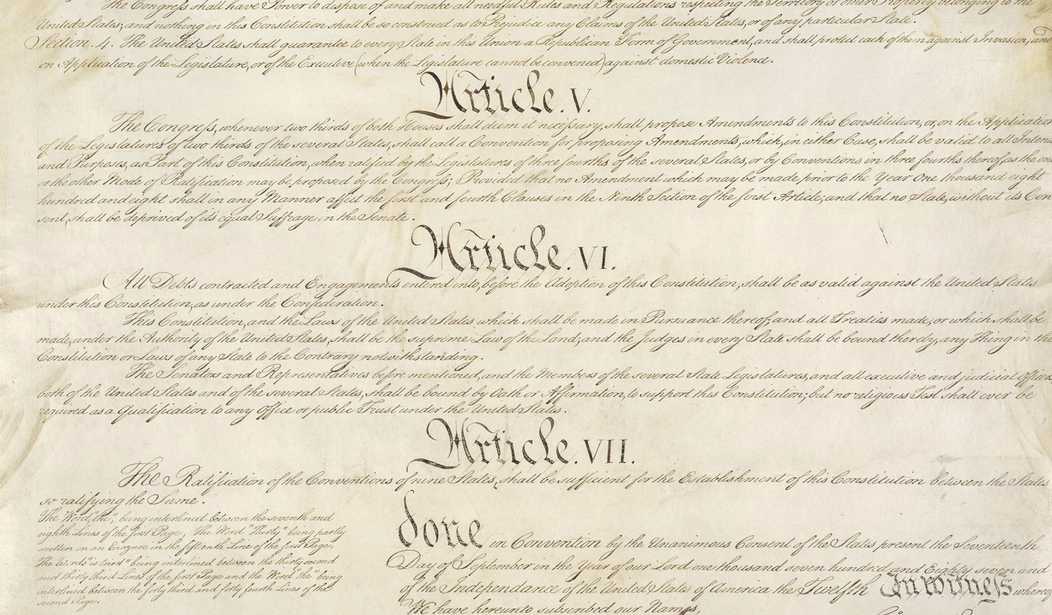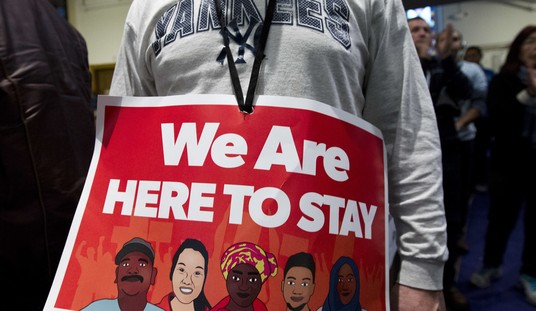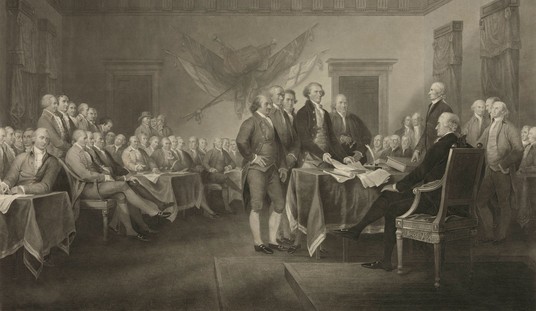We now have a President of the United States, Donald Trump, who says he is committed to streamlining the federal government. He is standing up an investigatory arm of the administration, the Department of Government Efficiency (DOGE), to identify and recommend the removal of wasteful government programs, departments, and personnel.
There is a case to be made for going much further, to return the federal government to what the Founders intended; to pare it once more back to its proper constitutional boundaries. This will go beyond trimming the fat; this will involve cutting the imperial colossus our federal government has become down to the bone, and then paring away some of the bone.
For the first installment of this series, let us discuss the proper role of government.
Some years back, I heard a comment that has stuck in my head ever since: “What government does for anyone, it should do for everyone, or it should do for no one.” This, in a nutshell, sums up the proper relationship of government to the citizens.
To be specific:
There is no justification for the government to treat anyone differently from anyone else, especially when those policies are based on anything as shallow as skin color. The race card is bandied about all too often in today’s political discourse, but the only real, institutionalized racism lies in what Dr. Thomas Sowell calls "the soft bigotry of low expectations." That is to say, government policies that promote special preferences based on race or ethnicity. For members of the affected communities, it is hard to see how these policies can be anything but insulting; they operate on the assumption that the members of a selected group, solely because of a superficial characteristic, require special government assistance to achieve what their fellows accomplish on their own.
It is not the proper role of government to shield people from the consequences of their bad decisions. There will always be a need for a modern, prosperous society to care for the truly helpless, such as people disabled through no fault of their own, children with no adults to care for them, and so forth. But the lazy, the indigent, the irresponsible – they have no moral claim on the fruits of the labor of the industrious. The government, and only the government, has the power to tax – to claim a portion of your resources with the force of law, with the implied threat of armed force if you try to abstain. In our age of ever-increasing welfare entitlements, that government has claimed a portion of every taxpayer’s proceeds toward just such a shield – requiring the industrious to toil longer and harder to support the indigent.
See Related: And So It Begins: First Lawsuits Filed Against Trump Agenda
Hell Yes, Let's Gloat! 'The Golden Age of America Begins Right Now'
Government functions on several levels; the founding principle of federalism spells out what is appropriate for those levels.
In our era:
The federal government, far from the imperial colossus it has become, should be responsible for only a few things: protecting our borders, maintaining a vigorous national defense, and dealing with foreign powers.
State governments bear one heavy responsibility: They are responsible for conducting elections. Popular media aside, there are no national elections; the “popular vote total” reported in presidential elections is a canard, nothing but. States set electoral policy, including such things as verifying voter eligibility. Without integrity in elections, nothing else matters. State governments also handle highways and roads, which are vitally important to commerce, and state universities, which are (or should be) important in providing industry with a capable, educated workforce.
County and municipal governments are responsible for several things: local police forces, fire protection, zoning, and schools, including local community colleges; these last are the wellspring of competent tradesmen, who are also vitally important.
Beyond these limited powers, the government at any level must not seek to:
- Deprive anyone of private property except within very narrowly defined limits; eminent domain, in particular, has been badly abused (see: Kelo v. New London.)
- Interfere with any free citizen’s personal life, property, or possessions, until that citizen interferes with another citizen.
- Extend any preference to one citizen or group of citizens over another, for any reason.
It is the nature of government to grow, to become ever more intrusive; it is the nature of government that it is inefficient, even wasteful. Examples of this abound. Our republic was founded on the overriding principle that government must be constrained. No less an authority on the founding principles of our nation than George Washington said, “Government is not reason; it is not eloquent; it is force. Like fire, it is a dangerous servant and a fearful master.” He was exactly correct; and the American people must remember that however dangerous, government and its various elected and appointed officials and their hirelings are our servants, not our masters. And if necessary, we should call on them to remember, as well. That is why the federal government should — must — be once more returned to its original constitutional limits.














